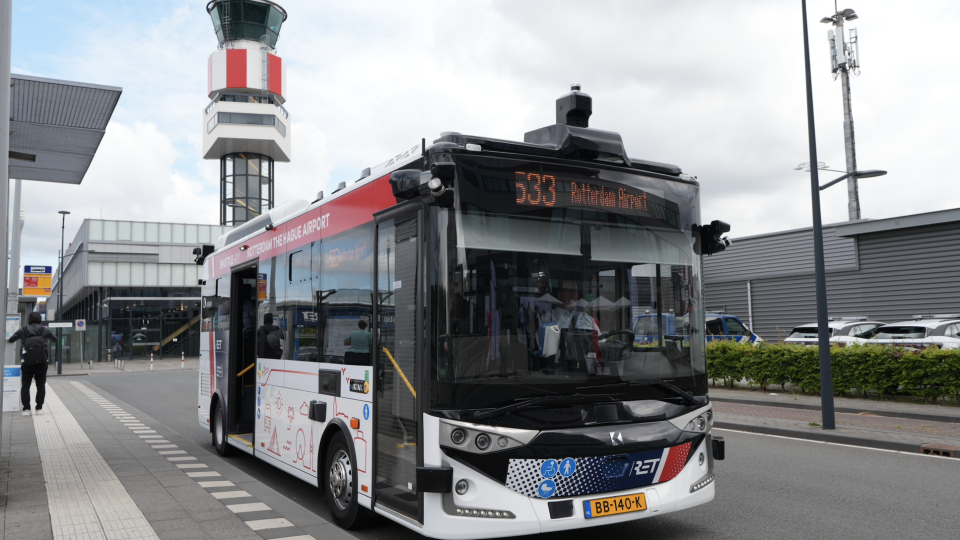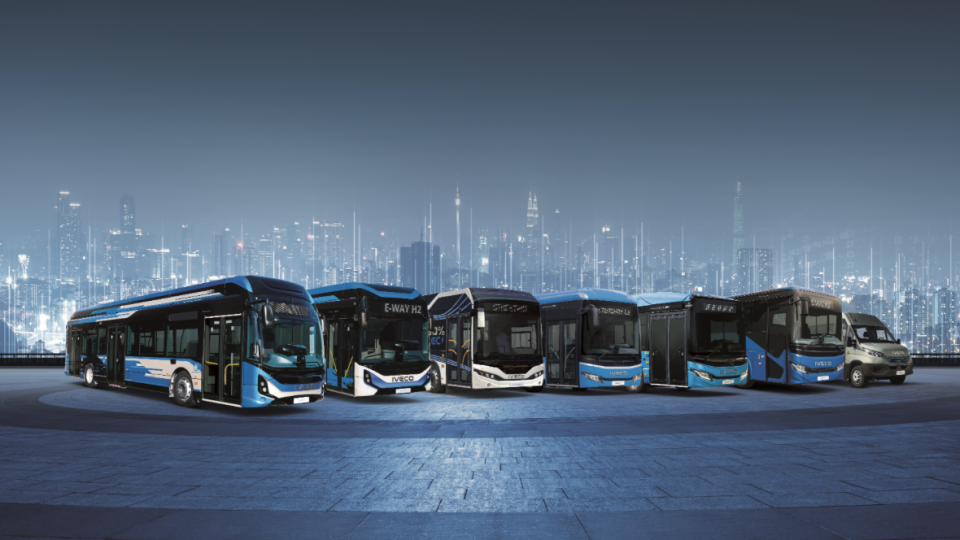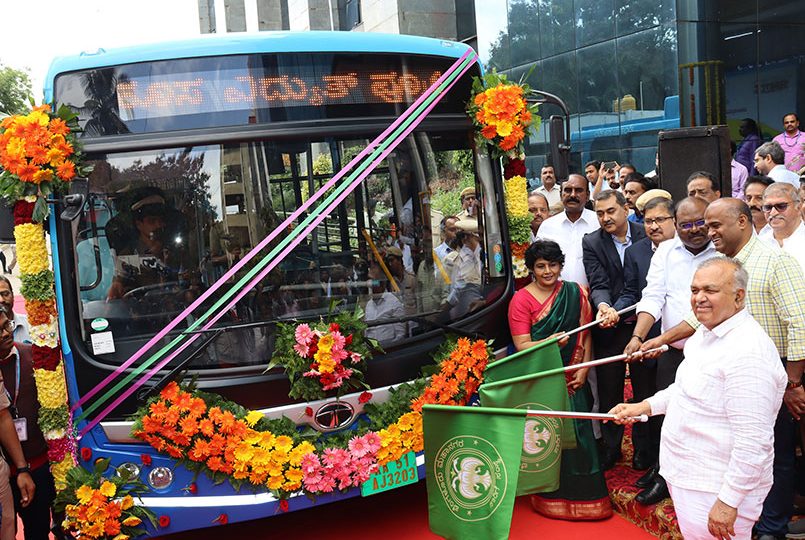UITP Summit 2019, the ‘consecration’ of electric buses (and relaunch of hydrogen)
UITP Global Public Transport Summit 2019 sees the ‘consecration’ of battery electric buses and relaunches hydrogen buses (at least in the world of product novelties). Solaris presented its Urbino 12 hydrogen, that promises an autonomy of 350 kilometers. This model is not just a concept: the Polish manufacturer already won an important tender in Bolzano and […]
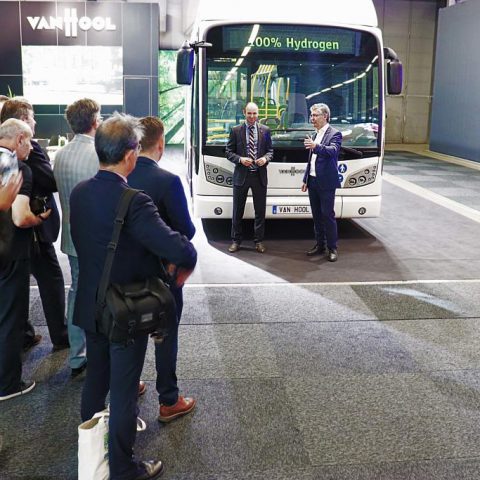
UITP Global Public Transport Summit 2019 sees the ‘consecration’ of battery electric buses and relaunches hydrogen buses (at least in the world of product novelties).
Solaris presented its Urbino 12 hydrogen, that promises an autonomy of 350 kilometers. This model is not just a concept: the Polish manufacturer already won an important tender in Bolzano and RATP signed a partnership agreement to test the vehicle for two months in the early 2020.
Hydrogen takes the stage also at the Van Hool stand, a brand that has been present in the sector for years and has a couple of premiere coming. The vehicle in Stockholm is the first one of a batch of 30 fuel cell buses to be supplied to Koln.
CaetanoBus, quite a local manufacturer based in Portugal, announced in Stockholm that at Busworld 2019 in Brussels it will present his hydrogen model made in collaboration with Toyota.
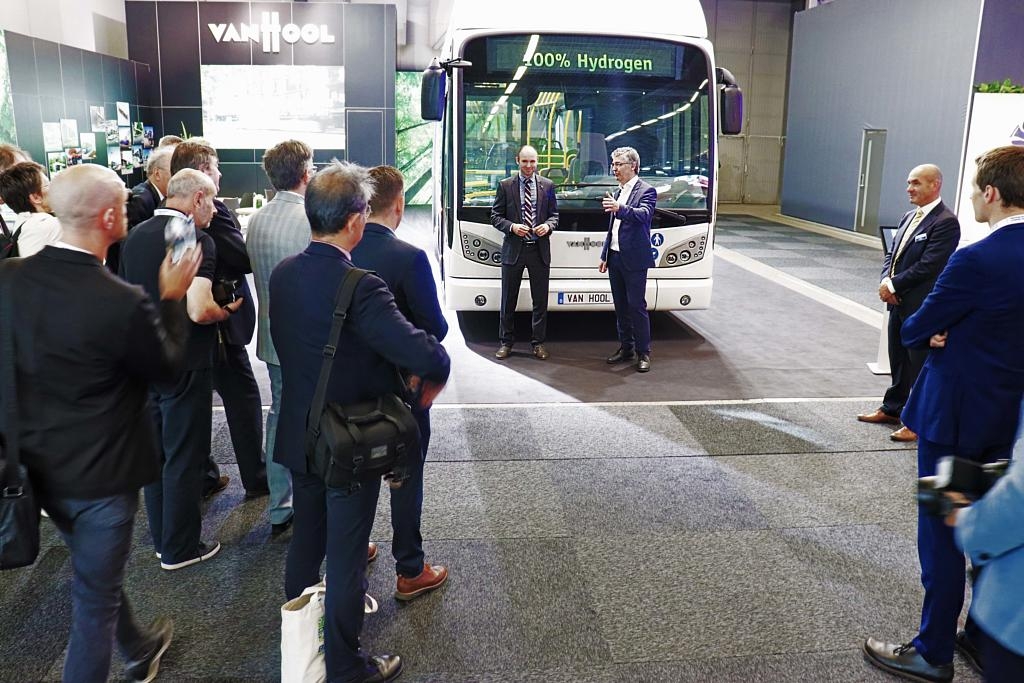
UITP 2019, the protagonists
UITP Global Public Transport Summit 2019 is the debut exhibition for Alfabus Europe (the result of a strategic partnership between Basco Bus, distributor and seller of 2nd hand buses based in northern Italy, and the big Chinese manufacturer). The company shows at its stand the latest version of his 12-metre electric bus Ecity L12 now equipped with independent suspensions and a special air condition system for the roof-mounted batteries.
Electric stand (of course!) also at BYD‘s, but no novelty are displayed. Same situation at Mercedes: the eCitaro remains the focus of Stuttgart’s electric strategy. MAN, as in the last IAA Commercial Vehicles in Hannover, came to Stockholm with the Lion’s City E, the first battery electric bus developed by the manufacturer. Central electric drive has been developed within Volkswagen group, and batteries are… huge. And at UITP Summit it was announced that several demo fleets will be in operation since 2020, while mass production will follow in the second half of next year.

Scania, a nice concept for future mobility
Scania gains attention with a nice concept short driverless and electric bus called NXT. A vehicle that aims to change the framework of urban mobility (ZF is also hugely investing in the field of driverless shuttle buses).
Heuliez is displaying the GX 337 Elec (the 12 meter version of the electric bus made in CNH Industrial group). Irizar e-mobility, that in recent years has been doing lot of effort in electromobility (let’s just mention the emobility plant in Aduna), in Stockholm is showing the 12 meter Irizar ie tram and the 18 meter ie bus.
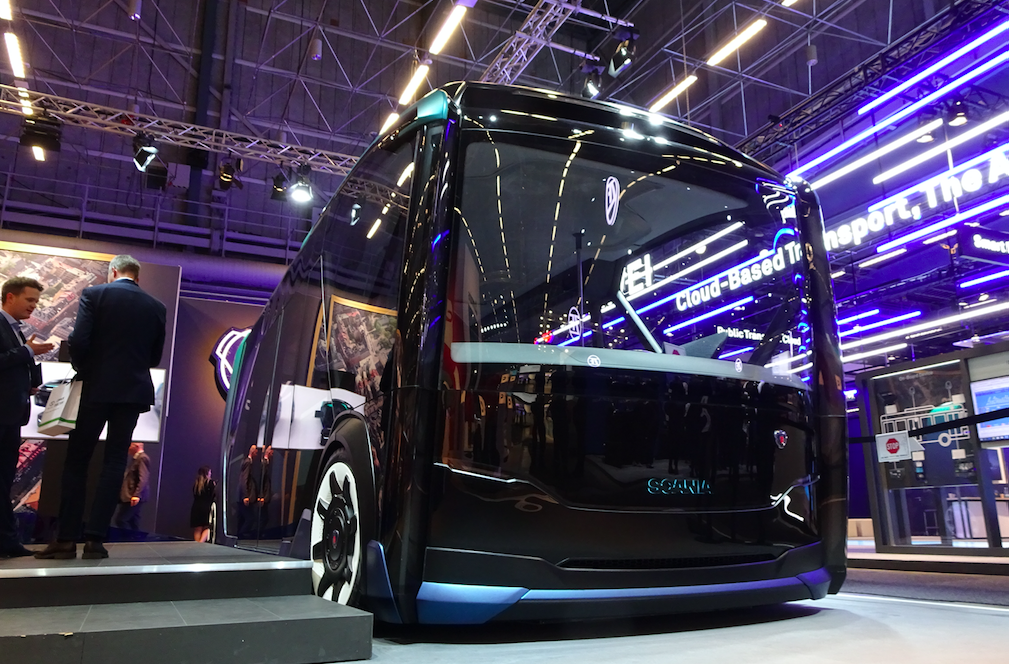
Ebusco with an intercity electric bus
VDL announced the launch of a 14,5-metre three-axle electric low floor bus but took to Sweden the articulated bus (it’ll be delivered in 13 units in South Sweden). Dutch manufacturer Ebusco presented a peculiar variant: an intercity electric bus for the DB group. The range, according to the manufacturer, stands at 400 km with 370 kWh battery. Volvo Buses took the occasione of UITP Global Public Transport Summit 2019 to present the articulated electric bus that was tested in Gothenburg (in the picture below). Official showcase will take place this autumn at Busworld Europe.
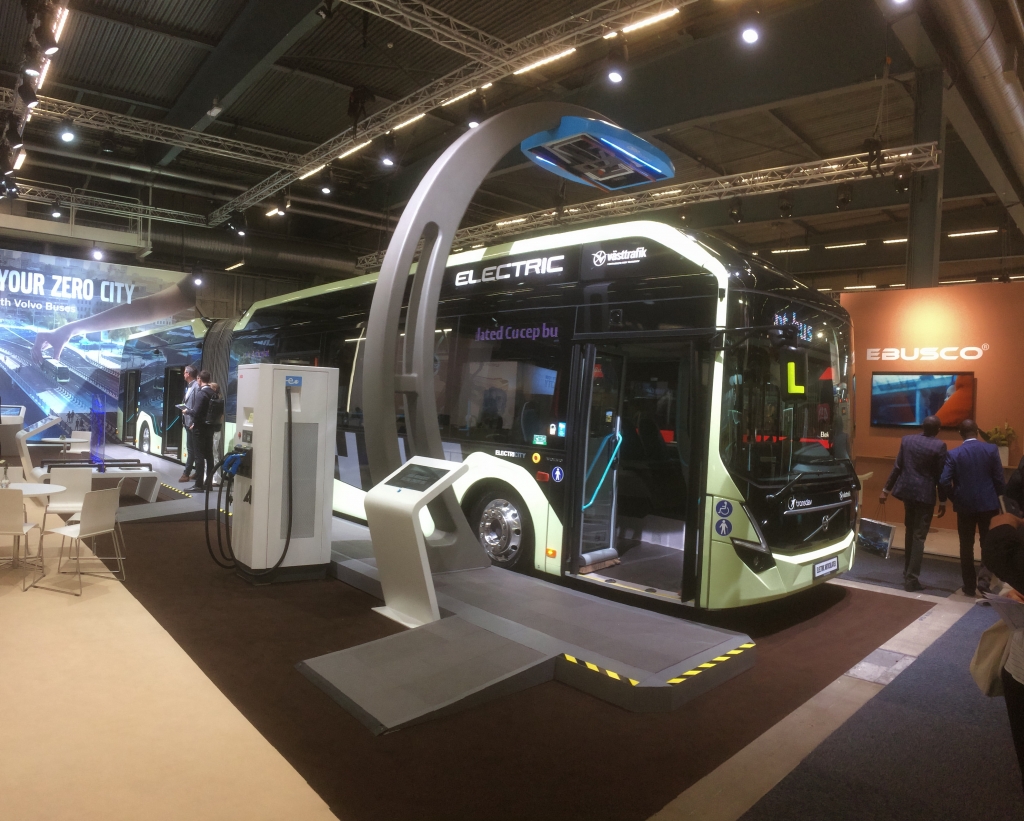
Otokar for the first time with the electric bus
It’s premiere’s time also at Otokar stands: the electric bus by the Turkish brand is equipped with ZF AxTrax. Also Temsa and Isuzu are attending, while ADL (recently taken over by New Flyer) shows a double decker Euro VI bus from the Enviro range. Russian maufacturer Kamaz displays an electric 12 meters delivered in more than 100 units to Moscow Transport. French company Safra is attending with the electric bus from Businova range (also fuel cell is available). Finally, Higher announced the launch of an electric coach at the Busworld Europe 2019 to be held in October in Bruxelles.
UITP presents APOLLO-EU project for wider ebus deployment
During the summit, UITP launched the APOLLO-EU project, a new platform that will bring together European transport authorities and operators to boost and support the exchange of knowledge and expertise on clean bus deployment. The challenge of the programme is to ensure that the knowledge and experience gathered in the past on electric bus fleets deployment is effectively transferred to a wide network of city stakeholders, supporting them in the transition towards cleaner and more sustainable bus systems.




